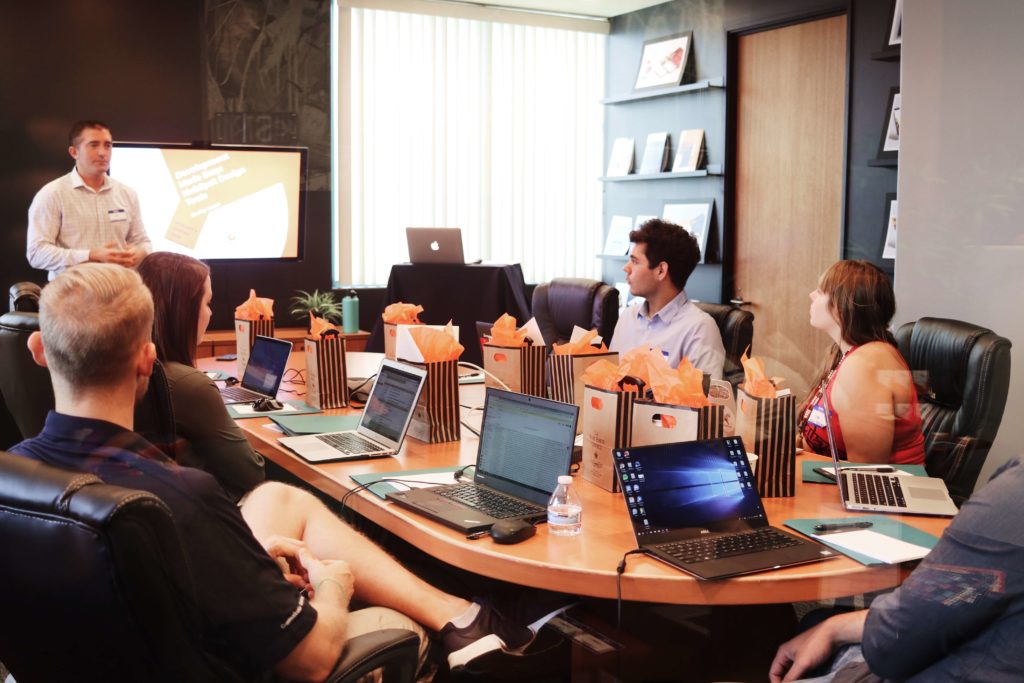
Today’s Guest: Dean Marchiori. Dean was one of IAPA’s Top 10 leaders in 2019.
I loved speaking to him as we ranged across the topics we all need to know about: talking to stakeholders, assisting clients making decisions, how to get a job in data.

Show notes and Transcript
Listen in on libsyn, or go to
Cindy Tonkin: Hi there, this is Cindy Tonkin, I’m the consultants’ consultant. I work with data science teams helping them work even smarter, faster and nicer. If you’re brilliant, and you want to be even better, this is the podcast for you.
Ladies and gentlemen, today I have Dean Marchiori, who’s one of the top 10 data IAPA leaders in analytics in 2019. I’ve been following him for a while and I finally got him to talk to us today about working smarter, faster and nicer. Welcome, Dean. How are you?
Dean Marchiori: Good to be here. Thanks. How are you?
Cindy Tonkin: I was just noticing on your LinkedIn profile, you have a master’s degree that you got before you got your bachelor’s degree. Tell me how that works.
Dean Marchiori: Like a lot of people, I don’t think that I had a natural path into data analytics. It wasn’t data science. Everyone says that, and I think it’s because there was no real established path. I had a previous career and it has come full circle. I was interested in maths and I wanted to do something in that area. I actually started doing that at Uni. It is a bit embarrassing, but I thought What kind of job am I going to get? In maths – right?
This is in the early mid 2000s and data wasn’t really a real sexy thing. There were obviously people doing it, but I didn’t really know about these opportunities. I thought finance is probably a good path. This is pre GFC so there are a lot of jobs, a lot of money, a lot of excitement. I was really interested by the financial markets. I wanted to do something there. I pursued that and went via finance and ended up just accruing a coursework masters, without really even going back to maths.

Light Bulb Moments
It actually led me full circle. I got a job in a large bank, doing finance, doing trading and it exposed me to all these roles and all these people that were doing this mysterious thing that I wanted. When I saw it, I was like a light bulb. I was like, yeah, that! That’s what I want to do. So, I end up going back and completing a BSc in maths. Just because I felt it like I needed to plug that gap or pass that link off. That was when I started my career in analytics, and that’s been going strong ever since.
It actually led me full circle… when I saw it, I was like a light bulb …that was when I started my career in analytics, and that’s been going strong ever since.
Cindy Tonkin: Yes, it’s interesting that a lot of the leaders I’m talking to on the podcast essentially didn’t come into analytics, purely into analytics. They came, like you, through a circuitous path that comes like, this is where I should be now.
Dean Marchiori: Yes. A lot of people ask me, how do I get into data science? I don’t want to tell people they should picking up a career and do that first, and then switch across. But that’s the only advice I know. I think in this era now our universities are catching up. They are offering programs, really highly tuned to it. So, maybe there will be a traditional path coming into it now.
the industry is certainly stronger having people from a really diverse background
I think the industry is certainly stronger having people from a really diverse background. Where you can connect with people that come from a finance background, or people that come from a bio background or from some sort of physical science. I think that’s really built the industry up in a really interesting place, and certainly means you can learn from a lot of interesting people.
Cindy Tonkin: Exactly.
I have a series of questions I always ask, and I am going to ask you first about your daily routines. What are the daily routines that you have to make you work smarter, faster, nicer?
Dean Marchiori: I used to commute into Sydney for work from about an hour away. I really wanted to try and avoid crowds and try and streamline that and beat the peak hour. Weirdly I have just stuck with it now.

Routines and strategy
I work 10 minutes from home, but I still get to work really early. I am usually at work by eight. I usually have lunch eaten and done by about eleven in the morning, which have been teased about before. I’m out really early that way I can, get dinner ready and look after the kids and stuff. I find that it really helps just being a little bit contrarian.
I find that it really helps just being a little bit contrarian.
Something I’ve done recently is I purchased this new pair of really nice noise cancelling headphones. I didn’t want to be one of those jerks that just has headphones on all day and doesn’t talk to anyone. But it’s had a really good effect. Everyone uses headphones, right? It’s not really ground-breaking.
I find it actually works as a really good psychological trigger for me when I need to do deeper work is. It doesn’t matter what I’m listening to, I don’t have a silver bullet solution to routines. But just having that on gives me a psychological trigger that I’m doing different work now.
I’m in an open-plan office. I raise this because it’s really important to give your colleagues and co-workers permission to interrupt you, even if you’re wearing headphones. People apologise and say I didn’t want to interrupt you, that’s why you’ve got them. Well no it’s not. It is because I don’t want to get distracted and it helps me somehow on a meta level.
it’s really important to give your colleagues and co-workers permission to interrupt you
Dean Marchiori: I actually issued colleagues with a scrunched up bit of paper each and said whenever you need me, you throw this over and hit me with it and that way I know you need my attention. Everyone laughed and we had a joke about it. But it was an important thing to do. If someone has something trivial or just want to have a bit of a gas bag, they’re probably not going to interrupt you and throw a piece of paper at you. But if they need you, they know they’ve got that permission to do it.
Cindy Tonkin: It’s a secret code to access my brain.
Dean Marchiori: Yes. It cleared the air. Some of us are a bit precious about how we work. You have to do whatever you have to do, and maybe that’s different for everyone. But acknowledge that everyone’s here just to do their work, and we should still be able to interact and be flexible.

Interaction and flexibility
It doesn’t matter if our routines get a little bit upset or someone wants to interrupt us or get taken off track. We should embrace that and not overlook the fact that we’re all part of a team. I don’t stick too heavily to routine. There are little things I do like that. But I think it’s important to be flexible.
Cindy Tonkin: And is your team all in the same geographical area?
Dean Marchiori: No, we have places everywhere. I do have a team of about half a dozen people that work where I am, and others that work in other locations. That means you have to be flexible. I work within a business unit that has people from a real diverse range of backgrounds.
There are people that are a bit data minded and there’s people that are plant scientists and botanists through to pilots, and all sorts of weird backgrounds. Again, that’s a good rich tapestry. It means everyone works differently and you have to do that. I don’t try and hold myself to anything too rigid.
Cindy Tonkin: Yes. How do you deal with working with people in remote teams? Do you have particular ideas that you like to get out there? Ways you like to work?
Dean Marchiori: Yes. I drive a lot and go see people face to face. I do a lot via Skype and teleconferencing as well. We’ve got a fairly big head office, which is about an hour and a half away from where I am, so I might spend a day there and batch a few meetings up. Because I still think there’s a lot of value to be gained out of face to face work.
As I said, a lot of people work differently. I’m working in an industry where you may have to liaise with someone who isn’t particularly up to date with video conferencing. They may be more old school – and that’s great. I like doing that, and I like getting out and about. Being flexible is the key. Just trying to respond to what that other stakeholder needs.
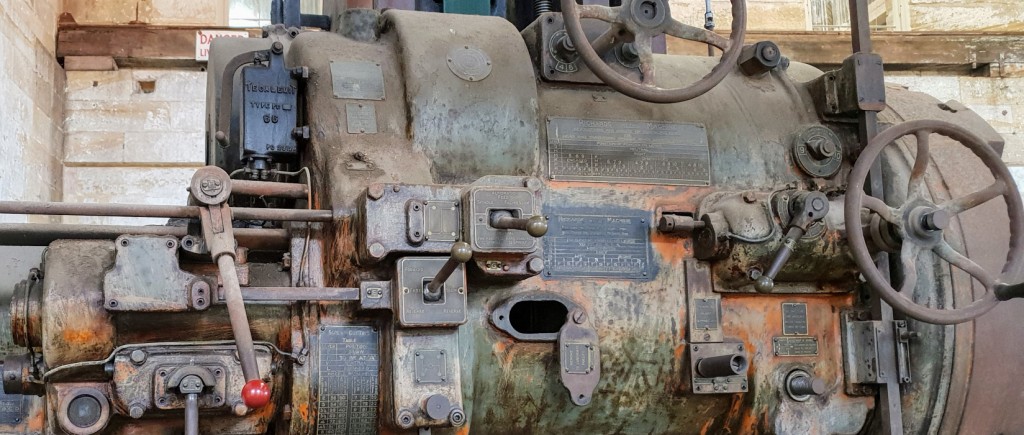
What the client wants
…adapting to what stakeholder needs rather than what you think you need
You’re obviously meeting for some mutual benefit, you need something from them, they need something from you. You’ve got to meet halfway in terms of how you work with other people and have a bit of empathy around how someone else wants to be communicated to, without demanding it’s 2020 you should be using zoom or slack. I’d like to in a lot of cases, but that’s all part of the fun.
Cindy Tonkin: Well, it’s adapting to what stakeholder needs rather than what you think you need.
Dean Marchiori: Yes. It’s easy to be really opinionated in tech roles. It’s text and material. You maybe need to put that to bed and listen to some other people. They’ve got a different background, so, let’s not impose our will on everyone.
Cindy Tonkin: And do you have a particular cadence for communications? With your team, do you meet every day every week? Are you working agile?
Dean Marchiori: Yes. It’s strange, everyone’s got their own way of working. We don’t have a really rigid cadence. I have to work pretty independently in a lot of the things I’m working on. I work internally, for larger organizations. So sometimes it’s hard to kind of box things up into deliverables. Things are a lot slower, longer bed, they might feed into larger projects. I have to artificially create those environments sometimes.
We use six-week cycles here. So, we’ll sit down and have a really good divergent planning session around what we want to achieve. It might be something that I’m doing forever, or it might be something we think would take a year, it might be something simple. And then we’ll say let’s converge on some action now. What’s the thing we can deliver in six weeks.

communication and meetings
That enables us to box it and say, we can take a risk on this, if we’re not sure about it. Six weeks is not the end of the world. It also means that, you can get a bit of breathing space from your managers and the people above you going, you go and work away, and we’re going to expect you to come back to us in six weeks. It gives you some breathing space.
How much support and check-ins you need in that period of time, is governed by what the work is and how much support you need, but it’s good to have some. I certainly feel comfortable with some structure. This is a way of having structure without really having structure. It blocks things off. I find that works really well.
I’ve abandoned measuring productivity at the daily level. I tend to do it just at the end of the week now. I look back and ask what did I achieve? I used to get caught up with measuring things daily. We always need to be making progress. But you just get taken off track or there’s a team meeting.
I used to have all this negativity around. Why do I have to go to this thing, it’s distracting me, I need to be doing my work. But that’s work too, that’s not a waste of time. Giving yourself the permission to burn a day and go, today is about helping others or having a team day or just having a talk fest, I’ll catch up tomorrow. I don’t worry day to day. I don’t force myself to have daily stand-ups.
I definitely like to look back at the end of the week and at least go How are we tracking? Are we on target? Then at the end of six weeks, do we have something deliverable that we can ship? Regardless of whether we continue on with that or not, at least we can bank some learnings. We’ve got something tangible, and I think that’s really helped strike a balance between being flexible and not just meandering on for months without delivering anything. That has been pretty important.

review and structure
you can change the rules at any time … you don’t want to have structure be like a chain that’s holding you back. But need to have some structure.
Cindy Tonkin: Absolutely. And the team works better that way you think?
Dean Marchiori: I think so. And you can change the rules at any time. So, you may have another project where you need to be working slightly differently, or you might need to be embedded on something else. That’s totally fine. You don’t want to have structure be like a chain that’s holding you back. But you need to have some structure.
So as long as you can define a way of working and be adaptable, and then stick to it. That’s great. But that doesn’t mean you can’t change and be agile with something else. Because part of the fun is that every project is different, and you get to work with different people in different domains. That’s all part of it.
part of the fun is that every project is different, and you get to work with different people in different domains
Cindy Tonkin: It sounds like that’s a lesson you’ve learned in your career. What are the other lessons? Are there any other lessons, like someone gave me great advice or things you’ve learned through just mucking it up or by accident?
Dean Marchiori: We always talk about what’s the problem we’re trying to solve? This is like an old trope. We needed to clearly define the problem before we start working on something. I agree with that completely and we should be doing that. But when it comes to learning and research, I almost flipped that.

solution first learning
I do more of what I would term solution first learning. I look for new ideas, read blog posts, and I’ll look at new solutions that I don’t particularly think I have an application for. So rather than, I’ve got a problem I need to research what solution, I tend to just work from both ends and hope they connect to meet up in the middle.
I tend to just work from both ends and hope they connect to meet up in the middle
I found that’s been really useful. It’s kind of fun, you get to learn about stuff that might be a little bit out of your domain, and then all of a sudden you go, I’m glad I learned that because, it’s been sitting there in the back of my mind, and now we can solve this new problem that’s just cropped up. Its inverting logic a little bit. But I think it’s helped me broaden my skill set and push out into areas that I wouldn’t have pushed out into otherwise.
Just being humble is another big one. It’s easy to fall into a trap of saying, we know we’re here to help make decisions. Therefore, we should tell people how they need to be doing their job. Understanding that you can learn a lot from other people. Having a bit of tact about how you go about your work to get the best out of someone. Having a really good, productive working relationship where you can contribute and you can also learn from other people.
I don’t know any magical way to do that other than looking back and cringing at previous ways, you’ve handled situations and just hoping you don’t make those sort of mistakes in the future. Maybe it’s just an experience thing. I’m sure I’ll look back on the way I do things now in five or ten years and think, you really had a lot to learn. But that’s good.
Cindy Tonkin: Yes, exactly. I saw a speaker a couple of years ago, Alan Weiss, who’s a consultants’ consultant in the states. He said, “I’m continually amazed at how stupid I was yesterday.” It’s pretty much that. Ten years ago, God, I was dumb!

learning from others
“I’m continually amazed at how stupid I was yesterday.”
Dean Marchiori: Bingo.
Cindy Tonkin: It was acquiring, as you say, more domains to bring in. We are acquiring more understanding of stakeholders, and the environment change and the context changes.
Dean Marchiori: When you’re trying to mentor or train more junior staff or interns that are coming in, it’s important not to try and force those lessons on people as well. Like saying, you must use this technology, you must do this, or this is the way we do it. It’s good to lead by example and show best practices. But it’s also important not to force people just to do things that you’ve learned without giving them the opportunity to learn it firsthand.
It’s okay to watch people make some mistakes, because that’s how you learn. You get these things burnt into the way you work by embarrassment or new revelations you’ve made. It’s important for others to do the same thing. It is a challenging part of leadership. What lessons do people learn for themselves, and what lessons can you afford them to learn by themselves?
Cindy Tonkin: The freedom to fail concept you have is that you can fail, and it will be okay. Because you’re containing the failure to not make the business go belly-up. It’s just going to be a project to six weeks behind or whatever.
A little bit of healthy or constructive anxiety is good. But you don’t want that to be something that’s going to cause anxiety or paralysis in what they’re doing.
Dean Marchiori: Yes. But even that’s hard. You want people to have a bit of fear of failure as well. A little bit of healthy or constructive anxiety is good. But you don’t want that to be something that’s going to cause anxiety or paralysis in what they’re doing.
Cindy Tonkin: Exactly.

Risk taking
Dean Marchiori: You want them to take risks, but you want them to know that you’re going to support whatever decision someone makes. I would say, you’re going to have to deal with these consequences if you get it wrong. I’m going to let you make this decision. But whatever decision you make, I’m going to back you up 100%.
Then they haven’t really got this safety net. The decisions you make are going to matter when you go out and do something on your own. When you’re more experienced, there’s going to be consequences and you need to learn how to manage that risk and how to make smart decisions.
Also knowing that you’re not going to get the blame. We’re all in this together. You do this like 1000 times. Even when you’re doing analysis, you’re making all these little decisions as you go. If you’re not comfortable in doing that, and you’re not comfortable in defending your assumptions and using your judgment, then you’re not really going to get anywhere. You’ve just got to do that sometimes and be prepared to go back and change it if it doesn’t work. Be humble and learn from your mistakes.
Be humble and learn from your mistakes.
Cindy Tonkin:
Nice. I like it. Let’s ask you about what makes a better or worse data analysts, data scientists, data person in your experience?

better data people
Dean Marchiori: A personal hero of mine is, Commander Chris Hadfield. He’s a Canadian astronaut. If you go into YouTube, you’ll see heaps of really cool videos.
Cindy Tonkin: Is he the one in who recoded the daily video for his son that went wildfire?
Dean Marchiori: Yes. He took a guitar up and then recorded a David Bowie song, so he was quite cool. He’s got a lot of good thoughts on, leadership and dealing with risk and fear. He has a really good book called an Astronaut’s Guide to Life on Earth. He talks about what makes a good astronaut and, I’m not saying we’re astronauts or anything like that, but I latched on to the definition and thought, this is really applicable in a lot of other fields. His definition is, it’s someone who can solve complex problems rapidly with incomplete information.
this is really applicable in a lot of other fields … it’s someone who can solve complex problems rapidly with incomplete information
Cindy Tonkin: Right.
Dean Marchiori: I’m sure that’s really useful if you’re an astronaut, I’m sure it’s really useful in a lot of situations. And I’ve found that it’s something that I’ve always recognised as a good trait. Someone who can quickly solve a complex problem and come up to speed with some new weird thing that they’ve got to interface with. And recognising that you’ve got incomplete information, that you’re able to still function and push forward and still thrive in that kind of situation. So, that’s a really good indication.
There are certain personality types that are just made for that. They’ve got a real passion for solving problems. They like undoing complexity, but they’re pragmatic and they want to keep moving forward and they’re okay with a bit of ambiguity. They don’t need to know everything before they can say yes or no. With stats, it’s all making decisions in the presence of uncertainty.
You need to really embrace it. It’s not a bad thing. I think that’s certainly not the only trait. I think there’s plenty of other traits that make someone really successful. But that’s something that I’ve related to. And that’s something that I’ve found has helped give me a good mental model on important characteristics.

recruiting
Cindy Tonkin: Nice. Have you recruited data people in the past? How do you do that?
Dean Marchiori: Again it’s hard. Because you can’t say, do you have this qualification? Do you have that? So, it’s about taking risks and understanding that people from diverse backgrounds can help contribute. What cuts across a lot of it and something I haven’t mentioned is communication. Regardless of what someone’s technical background is, I think being able to communicate well. That might be ideas and telling stories, or just being a good listener, understanding and having empathy. Those softer skills, I think is something that’s going to help you succeed.
it’s about taking risks and understanding that people from diverse backgrounds can help contribute
Whatever technical skills you need, you need to be hiring people that are smart enough to learn those things. We’re all smart enough to learn the skills we need to do our job that are commodity skills. Developing communication skills and recognising, even if you’re not great at it, that it is an important thing to have, and you want to keep working on it.
A good way to test that is through looking at data visualisations. A lot of people have these take-home exams or technical whiteboard interviews. You hear a lot of these horror stories from tech companies. Having someone tell a story with data visually, can reveal a lot about the skill set. It’s a really nice easy thing that someone may have already done if I’ve got a portfolio of work.
There are projects out there like the Tidy Tuesday project in the art community that it’s all about sharing and learning about data visualizations, and basic skills with data. It really shows, curiosity, basic data manipulation, creating a story, and thinking outwardly. How are others going to perceive these data that I’m presenting them? And then how is it going to be accessed and viewed by others? So having that real empathy.

meaningful conversations
Something as simple as making a chart, can develop a lot of really useful skills, and it can be a really good way to help develop somebody and identify areas where they can improve, outside of your fancy machine learning stuff and show me all the cool projects you’ve done. It’s something that is a little bit more accessible and realistic to get people to open up and show you what they know and what they can learn.
Cindy Tonkin: And how do you find that out? Do you put them in a room and talk to them? Do you take them to coffee? What do you do?
Dean Marchiori: It’s really great having them just show off to you. I really like it if people have a portfolio. Don’t be scared to share. It doesn’t have to be fancy. It doesn’t even necessarily have to be for anyone in particular. If anyone wants a job, it’s reasonable to assume that they have an interest in that area. If I have an interest in the area, I’m sure they’ve dabbled, and they’ve done stuff. So, show me some of that stuff, talk about it.
It’s embarrassing to sometimes be vulnerable and just display what you’re learning. Particularly if you’re starting off in a career. Giving someone the freedom to do that and have a discussion without judging them too harshly is a really meaningful way to have a conversation that’s outside of the normal ‘tell me about yourself ‘ sort of canned responses you get in interviews.
Not everyone has the time to be able to develop these things. A lot of people can’t share what they’re working on in companies. But producing a simple chart or a data visualization is something that you can do so quickly, and it reveals so much around your thought process. It’s not that you get a mark out of 100 and do we hire you or not?
it’s like a little window into your soul, and you can have these great conversations around it. That to me is more meaningful when you’re trying to really dig down deep into what drives someone and how they view data and communication.
Its more that it’s like a little window into your soul, and you can have these great conversations around it. That to me is more meaningful when you’re trying to really dig down deep into what drives someone and how they view data and communication. It is something I’ve found has been a useful thing to do.
Cindy Tonkin: Excellent. How do you keep your professional develop going? You’re clearly reading stuff and being exposed to stuff in several domains. You’ve already said that but how do you do that? What’s your process?
It’s about discipline. My computer broke the other day. IT said they need to do some open-heart surgery on it. You need to leave it with us, and we need to replace this and that. I don’t really know what I did with it, but I had to work from home that day as well. I’m working outside the office with no access to the network, no computer. I’m on my own device. I thought, I’ve got to give myself permission to catch up. It was a good time, I thought I’ll catch up on this online course I wanted to do and there’s all these bookmark articles and blog posts, papers I wanted to read.
I thought, I’ve got to give myself permission to catch up
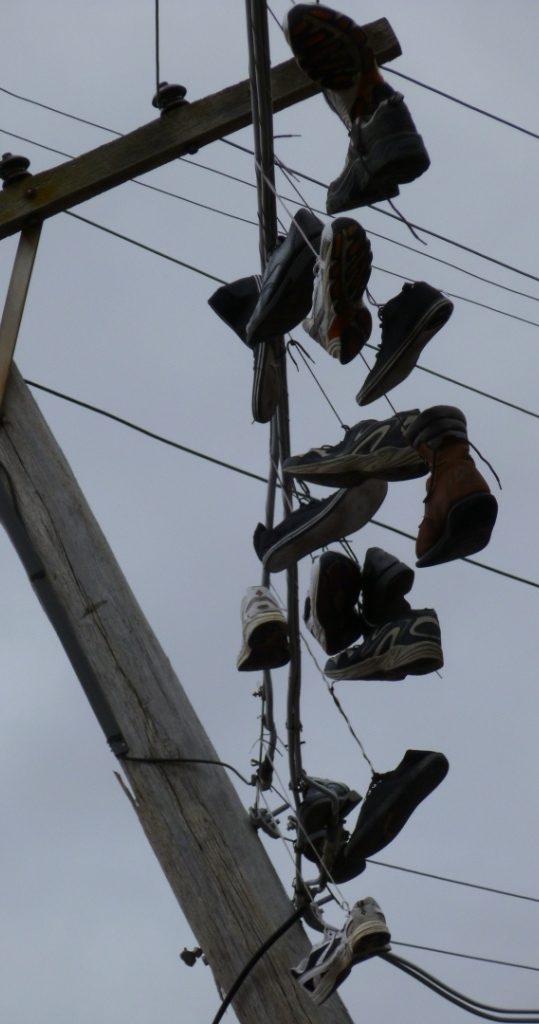
permission to learn
We’ve all got this stack of stuff that we’re interested in. I just sat down and gave myself permission to do that for a day. I was just filled with this new passion and this verve for life when I got back to work. There is stuff I’ve dabbled in and thought I really need to spend more time learning, but I don’t have time now I’ll come back to it. I did it. The gains I made in that week after I came back from that Friday, just doing that kind of work was phenomenal.
I just sat down and gave myself permission to do that for a day. I was just filled with this new passion and this verve for life when I got back to work.
The gains I made in that week … was phenomenal.
I was like, “Wow. I should do this every day.” But you’ve got to just do work sometimes. So whether you have to do it every week, every fortnight, maybe just one day a month that you and your team or you individually, just locking yourself away and watching a screencast or reading some blog posts or having a book club or just switching yourself off a little bit and giving, today’s a research day. Sometimes you need that if you can’t, chip away and do an hour a day because stuff always gets in the way.
Cindy Tonkin: Yes. I can’t do that. I’m more of an obsessive person. Give me a block of time. Just read one little thing a day. No, I can’t.
Dean Marchiori: The significance was, I didn’t have email, I couldn’t just jump on and pull those numbers. It was no sorry, I can’t. I’ll be back on deck Monday and I’ll call you first thing. I was out of the water, so it really gave me permission to do that. So, giving yourself permission to learn.
Then, what should you learn? Just following your curiosity. Not having it be a chore by thinking I’ve got this problem, I need to research X. I need to read everything. No. You might have to do that. But just read stuff that’s interesting. Even if you don’t know what you going to do with it.
just read stuff that’s interesting. Even if you don’t know what you are going to do with it.

follow your curiosity
Cindy Tonkin: What kind of stuff did you read on that day? What kind of stuff had you bookmarked? Are there particular sites or domains?
Dean Marchiori: Yes, good point. Where do you find stuff that is interesting?
I’m pretty heavily involved in the art community. Twitter’s great for looking at the art stats, hashtag and following a bunch of people that you look up to produce content and push it out.
I find Twitter and social media a bit of a chore, but there’s probably a bit of a signal to noise ratio problem there or there’s a lot of noise you got to get through, but bookmarking occasional nuggets you find from people that you like. You’ve seen their work before.
Looking at the weekly, which is like a community-driven website that aggregates a lot of interesting posts. Our weekly, the Tidy Tuesday project. There is a lot of aggregated places where you don’t have to trawl the whole internet. It curates it for you, and I’m sure other communities out there that are more maybe aligned with other listeners skillsets have similar things.
For the art community, which is pretty popular, there’s a lot of great places you can go to like that, get inspiration and just read weird stuff. Putting stuff out there as well is important. And you can get feedback from all sorts of people through those same channels.
Social media… don’t be afraid to use it as a two-way tool.
Don’t be afraid to use it as a two-way tool. You can read and passively do stuff. But then, if this is interesting, maybe I’ll try and play around with this myself. If you’re really brave maybe you share it or create a blog of your own if you want to. You can get a whole new element of feedback that way.
Be curious. Use the tools that are out there, even if you don’t potentially really feel that interested in using blogs and Twitter. If you force yourself out of your comfort zone, occasionally that can sort of pay for itself. So be creative and go out looking for stuff. There’s plenty out there.
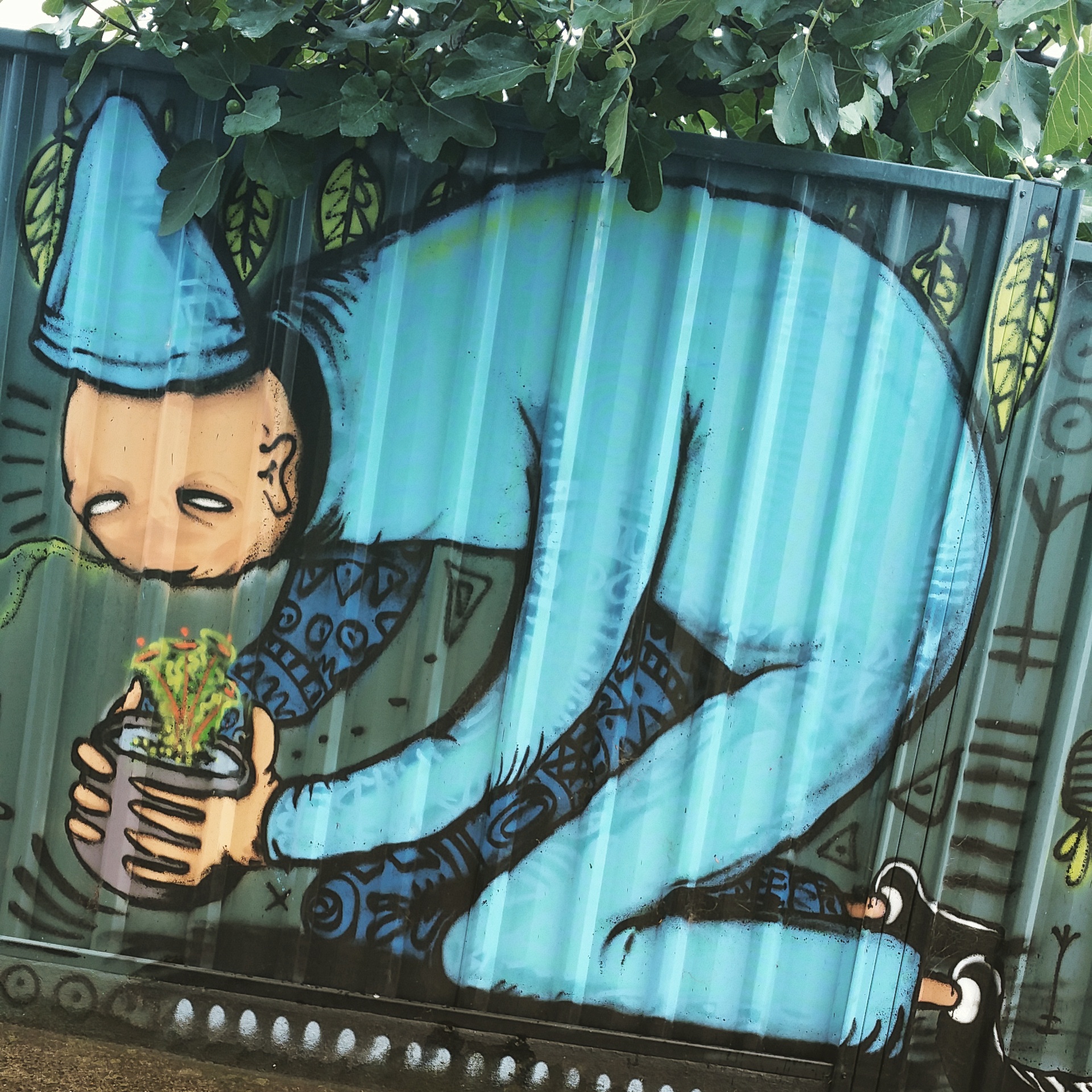
starting from scratch
Cindy Tonkin: So, if you were going to set up an analytics capability from scratch, what would you take into account?
Dean Marchiori: I have had to do this before. I think it’s important to have a strategy that you can tie all your work into. You kind of start by getting romanticised imagining all the cool technology I can set up and all these cool problems we can solve. But having a strategy that will help get buy in for the things that you want to do or the things you’ve been told maybe you have to do. And it’s a bit of marketing.
Cindy Tonkin: Buy-in from whom? From stakeholders? From management? From analysts? Who? Who do you want to buy in?
Dean Marchiori: Everyone ultimately. You’ve been hired for a reason. You are usually setting up this capability for a reason. That’s usually a top down reason. Having something that you can say, are we going to do this? This is exactly how it ties into Mr CEO. Ms CEO, your particular view of why you want to set this up. You can get a bit creative around doing that.
They are hiring you because they want you to tell them how best to get value out of data. You need to come to the table with these solutions, but you need to think about how you can sell that up the chain and get buy in. But then from the bottom-up. You don’t want to just be all talk.
You need to start delivering value immediately. Just small, incremental bits of value immediately. I don’t believe with locking yourself away for a year and saying, we are going to have this big platform launched, it’s going to solve the problems we have.
Manufacture a way that you can start incrementally delivering the value … Top-down is important and bottom-up is important, dealing with the end users and delivering value.
The real skill is trying to get those two things to meet in the middle.
So, outline it top down. Manufacture a way that you can start incrementally delivering the value. That’s important because that will give stakeholders that are in other parts of the organization – people that are maybe your end users or other people that you need buy-in from – some sort of tangible thing. So, then they can say, it’s not all talk, I can actually see you’re delivering value for me. Or, hey, this isn’t really working for me, if you did it slightly better maybe I could use this tool as well. And that’s where you really start to pick up traction.
Top-down is important and bottom-up is important, dealing with the end users and delivering value. The real skill is trying to get those two things to meet in the middle. It’s not one or the other. You have to balance both. It’s not really a Cookbook Solution, it’s easier said than done.
That’s the mental model I’ve tried to use – top-down, bottom-up and get it to all connect. Often it won’t. You think you’ve got a good idea and end users won’t like it, or it’s hard to get people to give you feedback, or perhaps you’ve got some great tool, but the company decides to go in a different direction. It is all part of doing business.
That’s the mental model I’ve tried to use – top-down, bottom-up and get it to all connect.

code of ethics
Another important thing is to codify your ethics. It’s good to have strategy and come up with new tools and deliver value and look really sexy like you are doing stuff. Having ethics and principles and setting those expectations up-front, is a really important step to make sure that your team and the way you approach your work is a consistent and ethical kind of framework.
You don’t end up with toxic ways of working. You don’t have to invent this yourself. There’s stuff out there like datapractices.org is a good community driven example, where they have a code of practice for doing data analysis and things you can do to promote ethical data analysis work, around how you share data, how you use data, how you make decisions around it. There’s a lot of resources out there.
We are in the Wild West with data science at the moment…
team strategy around how you deal with data ethically, with making decisions ethically is evolving.
This is going to be a big thing in the future. We are in the Wild West, with data science at the moment. Having something in your team strategy around how you deal with data ethically, and how you deal with making decisions ethically is evolving. It’s going to be more and more important, and you need to make that a deliberate part of the culture of your team so that people know where they stand, and you’ve got something you can stand behind.
Cindy Tonkin: Absolutely.
Let’s talk about complex things and data naive stakeholders. Clearly empathy is a very strong underpinning for all the work that you do. Are there any tips you’ve discovered at the time for explaining complex stuff?
Dean Marchiori: Yes, I don’t bother doing it, is a good approach for a while (laughing). It depends, like everything. We can all look back and cringe at times where we have tried to show how smart we are and force technical stuff down people’s throats.

making the complex simple
building that trust comes from actions and helping and being empathetic
We try and talk to them and explain to them how we did this fancy model, and this is how it works, and this is why it’s going to be so much better than what you’ve been doing for ten years. A lot of time people don’t care. They may care in some instances. But when you’re a trusted person within an organization -and building that trust comes from actions and helping and being empathetic – you’re there to do a role.
They’ve hired you to understand and all that complex stuff. They often don’t want to know that complex stuff. So, don’t try and explain the complex data stuff to people. Because they’ve hired you to do that. Now, they do want something, they want you to explain something. It’s usually not the type of model you’ve used.It’s usually the answer to the problem that they’ve asked you, and hopefully you know what that problem is.
Spend your time explaining to them how this is going to make their life easier. How this is going to solve that problem, how this is going to unlock some new insight for them. If they want to know how you came to this, explain by all means. You can then break it down. But I don’t think this is something that we should be doing -coming up with strategy to show people how complex the work we do is.
It’s important to clearly document processes. I spent a huge amount of time writing documentation that no one will ever read. Maybe I’ll read it in the future, which is valid, but I probably won’t. But if someone asked for it as a professional, I need to know that I can show them and explain that to them.
They’ve hired you to understand all that complex stuff. Spend your time explaining to them how this is going to make their life easier… solve that problem. Unlock some new insight for them.
Try and simplify, go the other way. By all means it’s hugely important to be able to justify it. I’m a big fan of having reproducible and replicatable work so that you can go back and show every step of the way how you produced your results.
That’s a case by case basis how you actually do it. You need to understand someone else’s background. It’s not something that I come out of the gates with. I would just focus on explaining them the things that they need to be explained. The things they want to know, rather than the things you want to tell them.

helping others
Find out what excites them, not what excites you.
Find out what excites them, not what excites you. That’s a hard thing to try and do. So, I don’t bother. If people want to know how smart I am, I’ll tell them that. Most of the time, they don’t care.
They just want to know how they can be better at their job. Get satisfaction out of helping other people rather than just developing cool tech. If all you’re concerned about is pushing the boundaries of machine learning and new techniques, then maybe working in industry is not the best fit.
That’s where you get the real gains and the real impact.
Get satisfaction out of helping other people rather than just developing cool tech… That’s where you get the real gains and the real impact.
Cindy Tonkin: Nice. I’ve got a question that’s not on the list, but I’m sure you’ll have some ideas about this. How do you make meetings more effective?
Dean Marchiori: It depends if I’m the one holding the meeting. I try and keep it really, really, really short, and to the point. I try and drip feed information to people before the meeting. I don’t like the, I need something I’ll book a meeting and then I’ll take you hostage in a room and sit down and explain what I want and put you on the spot. It’s important to take people on the journey a little bit. So, the meeting itself might be the last thing you do.
Just stopping by someone’s desk and saying, Hey, I’m working on something interesting. I’d really like your help with this. I think you’d be really, really valuable. I’ll send you more info later. Okay, well, hang on. Well, what is it? Okay, I’ll give you a two-minute explanation and you do something on the whiteboard.
Then you might send them something you’ve worked on and get some feedback. The meeting itself might be more driven around some decisions you want to make. Just talking to people and communicating normally. Like I said, don’t hold people hostage in a room and expect to get some sort of outcome.
However, like anyone that’s worked in a big organization, you just get invited to a lot of meetings. Some say no to meetings, or don’t go to them, they’re a waste of time. Like I said, I’ve tried to eliminate this whole, how productive am I today? If I get invited to a meeting, I’ll just go. I think it’s arrogant to say, I don’t need to go, I don’t need to know about this.
You can always learn something from any situation. If you change your mindset to, I might get something out of this, I might not. If I’m not getting something out of it, how can I change the narrative of that meeting, so I do.
How can I find someone interesting in there so I can say, I didn’t really learn anything, but I was glad I was there? Who is this other person, what do they do? Maybe I can speak to them at the end of the meeting and we can schedule a coffee catch up or something. You can always get some things out of it. So, go along to meetings if you get invited. You might learn something new. You might meet someone new.
the buy in
If you’re holding meetings yourself, we all know that strategy of just going to meetings and keeping an open mind will work. Legitimately you probably will get frustrated sometimes. So, just try and be smarter yourself and talk to people like people and bring them along on the journey.
If you need to meet and talk about something, hopefully you’ve built up enough of relationship by then to make it effective. There’s a real toxic culture in some places of meetings for meeting sake. So, walk over to someone’s desk, that’s why I drive around and see other people and pick up the phone and not just email and meet.
Certainly, you want to be respectful of people’s time, but I think you are being a bit more respectful of people’s time by engaging early and more humanly, rather than blocking out an hour and then having to explain to them everything from start to finish.
Cindy Tonkin: It’s the meeting before the meeting that makes the difference to the meeting.
Dean Marchiori: Yes. It’s not really politics. It’s just around getting people’s buy-in, not so you can just get what you want, but it’s so you can identify, is this going to be of use to you? Is this worth us spending time on and testing the waters a bit first.
It’s the meeting before the meeting, that makes the difference to the meeting. Don’t underestimate the value of coffee
Then if we need to meet, let’s have some clear outcomes. You know you’re on the same page already then. And don’t underestimate the value of coffee. Coffee catchups and stuff before you have a full-blown meeting, I think is a nice way of doing that.
A lot of people do that well, then a lot of people don’t. And, it’s tough. It’s easier said than done. There’s silos and people have their own interests and things. But you quickly learn which people in organizations are going to be allies for your work. They are like, that’s great. Sounds interesting. Sure, I’m on board, let’s book something in. There are people that immediately will shut you down and you think, well, that’s fine. Maybe they’re not the best collaborator for this project. Maybe I’ll find someone else who might be able to help.
Cindy Tonkin: Yes. Talk to me about your favourite charity. What’s your favorite charity?

favourite charity
Dean Marchiori: There’s a lot of great charities out there. One, I’ve had a bit of involvement with is St. John Ambulance Australia. I’ve logged about 500 hours as a first responder with St. John’s Ambulance, doing sort of front line medical care. We’ve got a pretty tough job. I don’t do so much of it now, it was in an earlier part of my life.
You see them everywhere, and they’ve got a pretty tough gig like a lot of charities. They’re dealing with people that are vulnerable and injured and sick. They’re often working in really hostile environments, on the front line, often with limited support. They don’t get paid. They’re all volunteers. That’s something that is always close to my heart personally.
There are a lot of people out there, like the Red Cross and other events that you might see at in those type of situations. They are a favourite of mine because I’ve got a bit of lived experience there. With any volunteer or any charity, if you see people out in the street or if you see Landcare doing work cleaning up the beach, or if you see people out at events, just say, thanks for being there. Stop to just thank them, often these things are really thankless.
They are all doing great work. Go and volunteer yourself if you have time, and you’re able to. When you come into contact with people that are doing work for the community it’s often thankless. People think, oh, it must be great to do that work. Well, it’s often not. Often, you’re dealing with really crappy situations.
Be nice and say, Hey, thanks so much for being here. You’re really making a difference.
So be nice and say, “Hey, thanks so much for being here. You’re really making a difference.” You will make someone’s day if you do that. They’ll stay doing that job and that’s really important. It doesn’t matter if you’re not doing it yourself. Recognize others are doing it and get interested and try and support them, even if it’s just a pat on the back.
Cindy Tonkin: Nice. Yes, beautiful, great suggestion. And it cost you nothing to do that. Just go thanks, you’re doing it. You’re doing a job that I couldn’t do it. Thank you so much for helping.
Is there anything else you want to say in closing?
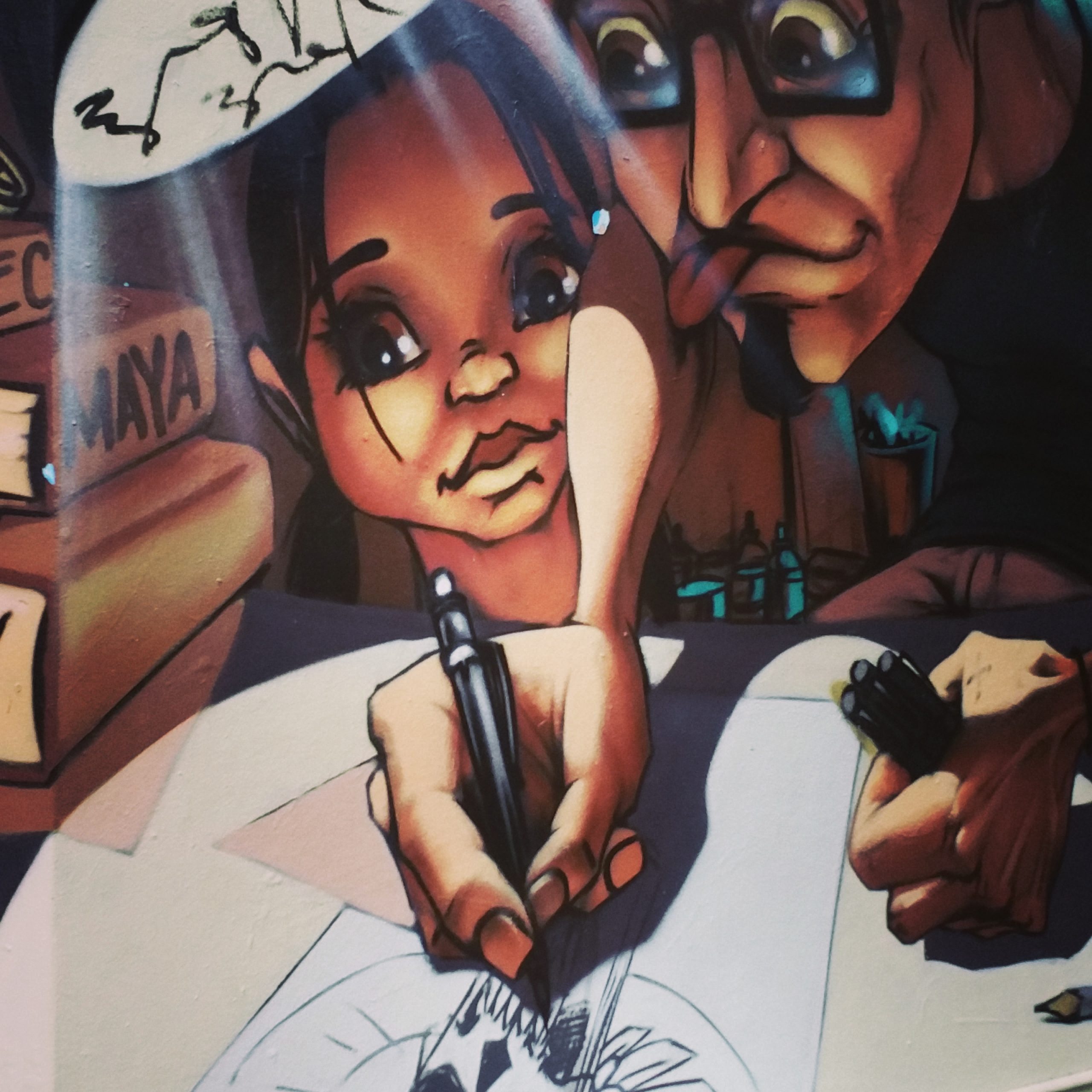
a whole new world
I really enjoy starting to think a little bit about the craft and the art behind doing data analysis, rather than just getting excited about the problems themselves.
Dean Marchiori: It’s been great to talk about it. As I’m maybe getting older – I’m not by any means highly experienced, I have a long way to go hopefully in my career – I really enjoy starting to think a little bit about the craft and the art behind doing data analysis, rather than just getting excited about the problems themselves.
I’s really great to connect with a lot of people. A lot of the other people that have been on your podcast are great. That they are at that stage where they want to share ideas around more of the meta aspects of data analysis. Not just say, use this method, or here’s a cool thing to do, or here’s a cool problem. But saying here’s how I actually approach my work, here’s how I set up my paints and how I clean my brushes. How I set up my studio.
Everyone has this process, regardless of whether you’re an artist or a scientist or whatever. But from the data analysis perspective, that’s something that’s really giving me a lot of satisfaction. If you get to a position of leadership, hopefully you get a bit more influence over that sort of stuff.
If not, you can just do it in your own little world. It is just an endless source of enjoyment and trying to improve. I’m really keen to hear from others that are interested in that as well. Anyone out there that finds this interesting or has different opinions, reach out to me. You can get in contact with me from here.
Cindy Tonkin: Your LinkedIn profile.
Dean Marchiori: Yes. Just keep communicating. It’s great to share these ideas. We’ve got this really cool community that’s building up. Like I said, when I started my career I went into finance because I didn’t think it existed. But now we’ve got this whole new world. We have a whole new bunch of people that are coming into this industry. We can build something really special. Something that I’m sure we all feel passionate that we can help organizations be better and share ideas. Let’s all do that together.
I talked about diverse backgrounds, but sometimes it’s nice hearing a lot of Australians talk about data in Australia. It’s great that the U.S. is so far ahead with a lot of this tech stuff. That’s where a lot of the resources and podcasts come from. But we’re in a really unique sort of environment to do analysis. When you’re trying to look for jobs and understand the people and the ways of working in Australia and the unique challenges you have to put-up against as the first data scientist in every company you ever go to. It’s good, but it’s nice to hear about others experience as well. Because it’s certainly different to, how to crack a data science job when it’s written by someone San Francisco – right?
understand the people and ways of working in Australia and the unique challenges… as the first data scientist in every company you ever go to… it’s nice to hear about others experience. Because it’s certainly different to how to crack a data science job when it’s written by someone in San Francisco .
Cindy Tonkin: Yes, totally different environment. Context means everything. Excellent. Thank you.
This is Cindy Tonkin I’m the consultants’ consultant, and you’ve been listening to smarter data people. This is part of what I do to understand how it is that data scientists can be more effective in the workplace – smarter, faster and nicer. And if you have a team, and you’re finding them harder to manage than they could be. If you’re constantly trying to squeeze more out of your budget and out of their time. And if you’ve got stakeholders or they’ve got stakeholders who are less than happy, sometimes, maybe a lot more than sometimes. It can be really annoying and it can make you feel incompetent.
I can help you help them get to the important problems faster, target the wasted time and save you time and money, and ultimately delight stakeholders so that you can feel competent again. It’s such a good feeling, talk to me.


